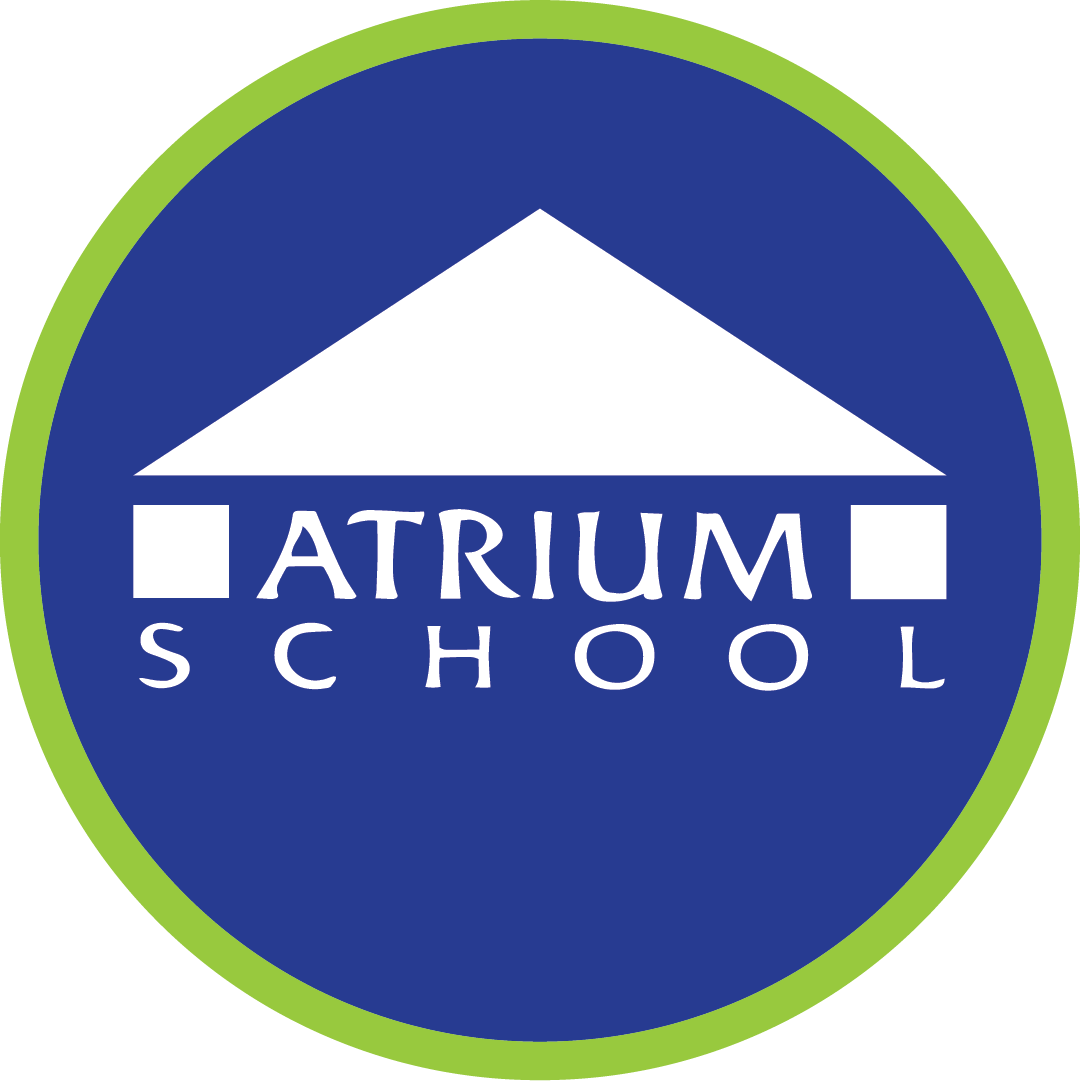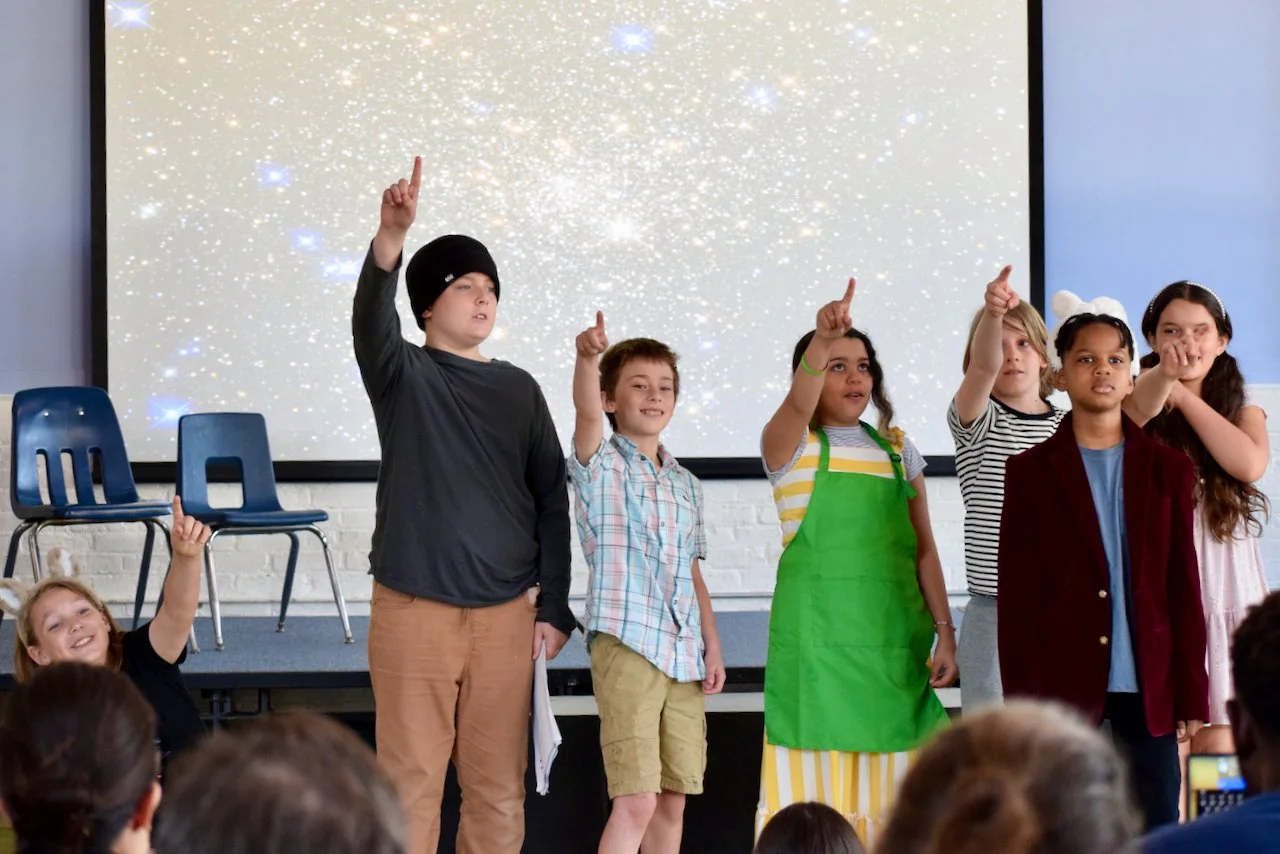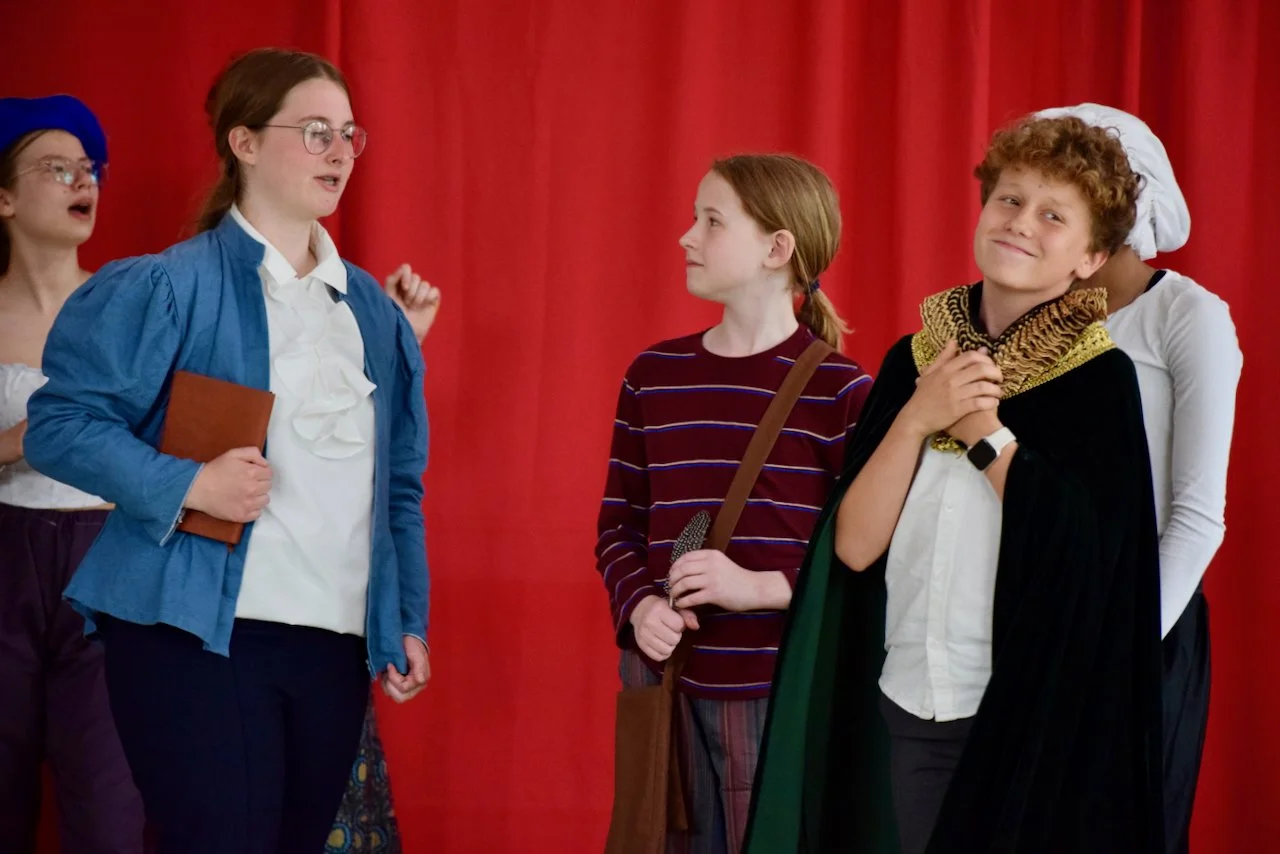Performing Arts
Curriculum Overview
Atrium School’s Performing Arts program uses creative drama as a tool to give students a foundation in performance skills, to explore the many applications of theatre to other subject areas such as literature and history, and to foster in each student a sense of creativity, confidence, and collaboration. The cumulative curriculum grows from a focus on character creation and storytelling in the lower grades to an emphasis on ensemble, improvisation, and individual interpretation in Middle School. The Performing Arts program as a whole uses story as a lens through which every student can engage with drama – whether jumping inside the narratives of our favorite author, living out the stories of characters we have invented, or taking on a tale by one of the most famous storytellers of all, Shakespeare. The goal of the program is that through creative drama and performance students further develop their confidence, teamwork, sense of play, pride in accomplishment, individual creativity, group work skills, and, above all, empathy.
Theatre for Readers: Kindergarten–Grade 3
The Theatre for Readers program is Atrium students’ first introduction to theatre and its many wonderful applications. Each grade spends one week exploring the works of a favorite author selected by the classroom teachers — from Dr. Seuss to Eric Carle to Oliver Jeffers — through creative drama and story dramatization. Students will work as a team of actors to explore and tell these stories using their bodies, voices, and imaginations, as they learn about the fundamentals of creating characters onstage. Each grade’s week will culminate in a short performance presented to the school at Friday morning assembly.
Literature Play Project: Grades 4–5
The Literature Play Project springs directly from the exploration of a read-aloud and involves the class adapting the book into a performance piece. Adapting a work of literature into a work of theatre is a hands-on way for the students to immerse themselves both in their reading of the novel and in an introduction to performance. The combination of literature and drama is especially fruitful in helping students to develop empathy with the characters by imagining what they may be thinking and feeling. The process of adaptation allows the students a forum to explore in-depth the elements of writing and reading such as point of view, dialogue, dramatic action, and story structure. This project brings the novel to life for the students, allowing them to engage in the story from many new perspectives – playwright, actor, director, and designer!
Performing Arts Rotation: Grades 6–8
In middle school, our work in Performing Arts emphasizes ensemble, improvisation, and individual interpretation. Students learn to work not only as actors but also as playwrights and directors. Students participate in a trimester-long curricular Performing Arts class and also have the option to join two extracurricular productions per year, one play and one musical. Through creative drama and performance, students further develop their confidence, teamwork, sense of play, pride in accomplishment, individual creativity, group work skills, and, above all, empathy.
Shakespeare: Grade 8
This ELA/Performing Arts unit thrusts our eighth grade students into the rich and wonderful world of Shakespeare. Through the combination of ELA discussions and assignments with Performing Arts exercises and concepts, the students are completely immersed in one of Shakespeare’s stories and characters. Each student has the chance to analyze and perform a monologue from the play, to rewrite scenes in modern contexts, to improvise as the characters and explore their complex and convoluted arcs, and more. The unit focuses on the agency of each actor, reader, and director to interpret the play differently, and culminates in a group project in which students must develop a ‘concept’ for a specific scene in the play, justify their choices in a ‘director’s note,’ produce their scene using design elements, and perform it for the class.
Middle School Theatre
In middle school, students have the opportunity to participate in after-school theatre productions, including a fall play and a spring musical. Cast members often refer to our rehearsals simply as “play” – “When does play start?” “Do we have play this Sunday?” “What are we doing in play today?” – as opposed to “practice,” “rehearsal,” or even “the play.” At all ages, drama allows us to do just that: play. As we take on characters whose lives, identities, and experiences are different from our own, as we imagine ourselves into worlds of our own invention, and as we express emotions and ideas and share ourselves with audiences, we engage in what Einstein called the ‘highest form of research’ – play. In drama, we research humanity, history, and how to share space with one another.
The Middle School’s After-School Musical Theatre program provides students with the unique opportunity to perform in a full-length musical! Students in this program focus on detailed scene work, learn and create choreography, further their skills as musicians and vocalists, develop distinct characters through their body and voice, and work as an ensemble to perform in front of the whole school community.






